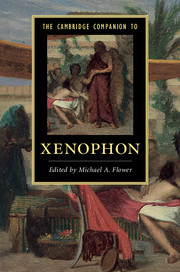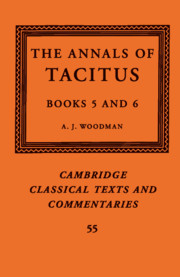Refine search
Actions for selected content:
23990 results in Ancient history
Chapter Twelve - Egypt in the ‘Axial Age’
- from Part V - Ancient Civilizations at the Turn of the Axis
-
-
- Book:
- Eurasia at the Dawn of History
- Published online:
- 28 March 2017
- Print publication:
- 16 January 2017, pp 183-197
-
- Chapter
- Export citation
Part III - Approaching Social Complexity
-
- Book:
- Eurasia at the Dawn of History
- Published online:
- 28 March 2017
- Print publication:
- 16 January 2017, pp 125-150
-
- Chapter
- Export citation
Chapter Twenty Six - Images, Ornament, and Cognition in Early La Tène Europe: A New Style for a Changing World
- from Part VIII - Changing Symbols, Changing Minds?
-
-
- Book:
- Eurasia at the Dawn of History
- Published online:
- 28 March 2017
- Print publication:
- 16 January 2017, pp 380-391
-
- Chapter
- Export citation
Chapter Seven - From the Neolithic to the Iron Age – Demography and Social Agglomeration: The Development of Centralized Control?
- from Part II - The Development of Social Differentiation
-
-
- Book:
- Eurasia at the Dawn of History
- Published online:
- 28 March 2017
- Print publication:
- 16 January 2017, pp 106-124
-
- Chapter
- Export citation

The Cambridge Companion to Xenophon
-
- Published online:
- 12 January 2017
- Print publication:
- 15 December 2016

The Annals of Tacitus
- Books 5–6
-
- Published online:
- 05 January 2017
- Print publication:
- 08 December 2016
Bibliography
-
- Book:
- Roman Geographies of the Nile
- Published online:
- 23 February 2017
- Print publication:
- 05 January 2017, pp 298-332
-
- Chapter
- Export citation
Chapter 2 - The Dismembered Nile
-
- Book:
- Roman Geographies of the Nile
- Published online:
- 23 February 2017
- Print publication:
- 05 January 2017, pp 69-105
-
- Chapter
- Export citation
Introduction
-
- Book:
- Roman Geographies of the Nile
- Published online:
- 23 February 2017
- Print publication:
- 05 January 2017, pp 1-26
-
- Chapter
- Export citation
Index
-
- Book:
- Roman Geographies of the Nile
- Published online:
- 23 February 2017
- Print publication:
- 05 January 2017, pp 333-338
-
- Chapter
- Export citation
Abbreviations
-
- Book:
- Roman Geographies of the Nile
- Published online:
- 23 February 2017
- Print publication:
- 05 January 2017, pp xiv-xvi
-
- Chapter
- Export citation
Chapter 5 - This River Is a Jumbled Line, Perhaps?
-
- Book:
- Roman Geographies of the Nile
- Published online:
- 23 February 2017
- Print publication:
- 05 January 2017, pp 198-233
-
- Chapter
- Export citation
Chapter 1 - A World Full of Maps?
-
- Book:
- Roman Geographies of the Nile
- Published online:
- 23 February 2017
- Print publication:
- 05 January 2017, pp 27-68
-
- Chapter
- Export citation
Chapter 4 - Creatio ex Nilo
-
- Book:
- Roman Geographies of the Nile
- Published online:
- 23 February 2017
- Print publication:
- 05 January 2017, pp 150-197
-
- Chapter
- Export citation
Figures
-
- Book:
- Roman Geographies of the Nile
- Published online:
- 23 February 2017
- Print publication:
- 05 January 2017, pp ix-x
-
- Chapter
- Export citation
Chapter 6 - Triumph and Disaster
-
- Book:
- Roman Geographies of the Nile
- Published online:
- 23 February 2017
- Print publication:
- 05 January 2017, pp 234-278
-
- Chapter
- Export citation
Contents
-
- Book:
- Roman Geographies of the Nile
- Published online:
- 23 February 2017
- Print publication:
- 05 January 2017, pp vii-viii
-
- Chapter
- Export citation
Chapter 3 - Gazing on the Nile
-
- Book:
- Roman Geographies of the Nile
- Published online:
- 23 February 2017
- Print publication:
- 05 January 2017, pp 106-149
-
- Chapter
- Export citation
Copyright page
-
- Book:
- Roman Geographies of the Nile
- Published online:
- 23 February 2017
- Print publication:
- 05 January 2017, pp iv-iv
-
- Chapter
- Export citation
Dedication
-
- Book:
- Roman Geographies of the Nile
- Published online:
- 23 February 2017
- Print publication:
- 05 January 2017, pp v-vi
-
- Chapter
- Export citation
